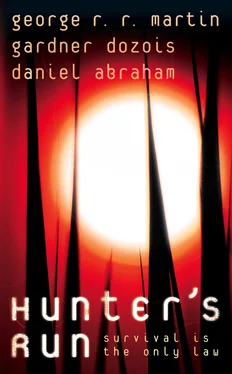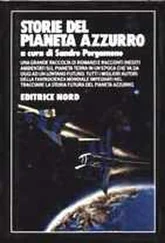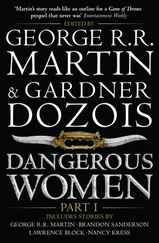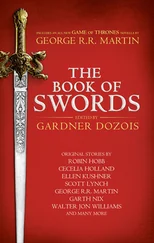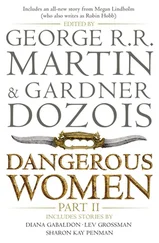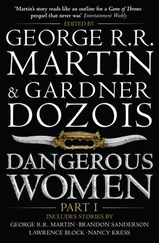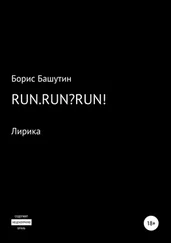A family of tapanos – small, raccoon-like amphibians with scales like a hedgehog’s spikes – lumbered up from the water, considered Ramon with dark, shining eyes, and made their way toward the plaza, where they would scavenge for the dropped food and trash of the day. Ramon watched them pass, slick dark paths of canal water trailing behind them, then sighed and hauled himself to his feet.
Elena’s apartment was in the maze of streets around the Palace of the Governors. It perched above a butcher’s shop, and the air that came in the back window was often fetid with old gore. He considered sleeping in his van, but he felt sticky and exhausted. He wanted a shower and a beer and a plate of something warm to keep his belly from growling. He climbed the stairs slowly, trying to be quiet, but the lights were burning in her windows. A shuttle was lifting from the spaceport far to the north, tracking lights glowing blue and red as the vessel rose toward the stars. Ramon tried to cover the click and hiss of the door with the throbbing rumble of the shuttle’s lift drive. But it was no use.
‘Where the fuck have you been?’ Elena yelled as he stepped inside. She wore a thin cotton dress with a stain on the sleeve. Her hair was tied back into a knot of black darker than the sky. Her teeth were bared in rage, her mouth almost square with it. Ramon closed the door behind him, and heard her gasp. In an instant, the anger had left her. He followed her gaze to where the European’s blood had soaked the side of his shirt, the leg of his pants. He shrugged.
‘We’ll have to burn these,’ he said.
‘Are you okay, mi hijo ? What happened?’
He hated it when she called him that. He was no one’s little boy. But it was better than fighting, so he smiled, pulling at the tongue of his belt.
‘I’m fine,’ he said. ‘It was the other cabron who took the worst of it.’
‘The police … will the police …?’
‘Probably not,’ Ramon said, dropping his trousers around his knees. He pulled his shirt up over his head. ‘Still, we should burn these.’
She asked no more questions, only took his clothes out to the incinerator that the apartments on the block all shared, while Ramon took a shower. The time readout in the mirror told him that dawn was still three or four hours away. He stood under the flow of warm water, considering his scars – the wide white band on his belly where Martin Casaus had slashed him with a sheet metal hook, the disfiguring lump below his elbow where some drunken bastard had almost sheared through his bones with a machete. Old scars. Some older than others. They didn’t bother him; in fact, he liked them. They made him look strong.
When he came out, Elena was standing at her back window, arms crossed below her breasts. When she turned to him, he was ready for the blast furnace of her rage. But instead, her mouth was a tiny rosebud, her eyes wide and round. When she spoke, she sounded like a child; worse, like a woman trying to be a child.
‘I was scared for you,’ she said.
‘You never have to be,’ he said. ‘I’m tough as leather.’
‘But you’re just one man,’ she said. ‘When Tomas Martinez got killed, there were eight men. They came right up to him when he came out of his girlfriend’s house, and …’
‘Tomas was a little whore,’ Ramon said and waved a hand dismissively, as if to say that any real man ought to be able to stand up against eight thugs sent to even a score. Elena’s lips relaxed into a smile, and she walked toward him, her hips shifting forward with each step, as if her pussy were coming to him, the rest of her trailing behind reluctantly. It could have gone the other way, he knew. They could as easily have passed the night as they had so many others, shouting at each other, throwing things, coming to blows. But even that might have ended in sex, and he was tired enough that he was genuinely grateful that they could simply fuck and then sleep, and forget about the wasted, empty day that had just gone by. Elena lifted off her dress. Ramon took her familiar flesh in his arms. The scent of old blood rose from the butcher’s shop below like an ugly perfume of Earth and humanity that had followed them across the void.
Afterward, Ramon lay spent in the bed. Another shuttle was lifting off. Usually there was hardly more than one a month. But the Enye were coming soon, earlier than expected, and the platform above Diegotown needed to be fitted out to receive the great ships with their alien cargos.
It was generations ago that mankind had raised itself up from the gravity wells of Earth and Mars and Europa and taken to the stars with dreams of conquest. Humanity had planned to spread its seed through the universe like a high councilor’s son at a port town brothel, but it had been disappointed. The universe was already taken. Other star-faring races had been there before them.
Dreams of empire faded into dreams of wealth. Dreams of wealth decayed into shamed wonder. More than the great and enigmatic technologies of the Silver Enye and Turu, it was the nature of space itself that defeated them, as it had defeated every other star-faring race. The vast dark was too great. Too big . Communication at the speed of light was so slow as to barely be communication at all. Governance was impossible. Law beyond what could be imposed locally was farcical. The outposts of the Commercial Alliance that humanity had been ‘persuaded’ to join by the Silver Enye (much as Admiral Perry’s gunships had ‘persuaded’ Japan to open itself up for trade in a much earlier generation) were wideflung, some outposts falling out of contact for generations, some lost and forgotten or else put on a bureaucrat’s schedule of concerns to be addressed another generation hence by another bureaucrat as yet unborn.
Establishing dominance – or even much continuity – across that gaping infinity of Night was something that seemed possible only from the provincially narrow viewpoint imposed by looking up from the bottom of a gravity well. Once you got out amongst the stars, you learned better.
No race had been able to overcome such vast distance, and so they had striven to overcome time. And it was in this that humanity at last found some small niche in the crowded, chaotic darkness of the universe. Enye and Turu saw the damage done by humanity to their own environment, the deep human propensity for change and control and their profoundly limited ability to see ahead to consequences, and they had found it more virtue than vice. The vast institutional minds, human and alien both, entered into a glacially slow generational agreement. Where empty planets were, intractable and inconvenient and dangerous, with wild flora and unknown fauna, there humans would be put. For the slow decades or centuries that it required to tame, to break, to pave over whatever marvels and threats evolution had put there, the Silver Enye and Cian and Turu and whatever other of the great races happened by would act as trade ships once had in the ancient days when mankind had displaced itself from the small islands and insignificant hills of Earth.
The São Paulo colony was barely in its second generation. There were women still alive who could recall the initial descent onto an untouched world. Diegotown, Nuevo Janeiro, San Esteban. Amadora. Little Dog. Fiddler’s Jump. All the cities of the south had bloomed since then, like mold on a Petri dish. Men had died from the subtle toxins of the native foods. Men had discovered the great cat-lizards, soon nicknamed chupacabras , after the mythical goat-suckers of Old Earth, that had stood proud and dumb at the peak of the planet’s food chain, and men had died for their discovery. The oyster-eyed Silver Enye had not. The insect-and-glass Turu had not. The enigmatic Cian with their penchant for weightlessness had not.
Читать дальше
